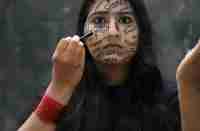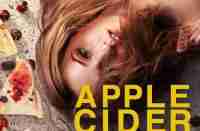Distinctive Irish TV has a bright future

When the show first premiered back in 2018, it already had all the hallmarks of being a distinctly unique programme. At a glance, the show’s premise did ring a tad familiar – a group of teenage friends navigating school, family, friends, and life’s general hurdles. We’ve all seen that before. But of course the obvious distinction in the show’s premise came from just where and when it was set: during the troubles in Northern Ireland.
One of the things the show did exceptionally well over its three seasons was committing to telling (relatively) realistic stories about the day-to-day activities and struggles of its characters, beyond the backdrop of the political turmoil playing out around them. Of course, Derry Girls was by no means afraid to tackle the serious and solemn side of things from time to time, but being technically a comedy, this was not the show’s primary focus.
If anything, lightheartedness being the show’s go-to tone only served to make those select moments where aspects of the magnitude and complexities of the troubles were addressed unabashedly all the more poignant and hard-hitting. Anyone who’s seen the show will attest to its distinctly Irish style of comedy, and this too contributed to making the balancing act between the shows lighter and heavier moments seem so natural; you had already bought into the fact that the show knew what it was talking about when it came to the Irishness of it all, so there was more ground for it to stand on once the time came to address the serious issues. You knew the show understood the gravity of things even before they showed the family falling silent as the TV played the news, or before Erin’s grandad’s emotive speech in the last episode.
In a sense, Derry Girls can attribute a degree of its success to that distinct sense of Irishness that’s interwoven into its stories and characters.
Though it was unique in that life under the troubles was a core aspect of its premise, it, and a handful of other recent shows such as 2020’s Normal People or even the Roscommon-based Moone Boy, share something in that they found great success in telling the stories of everyday Irish people, and perhaps this is due to the fact that we don’t often get the chance to see ourselves and the little details of Irish culture portrayed on screen all that often.
When it comes to TV, there is a huge saturation of US and UK-set entertainment. Obviously Irish TV shows are not a new phenomenon, and there are many beloved examples from over the years, but it has been so wonderful to see a new age of Irish TV coming to the fore in recent years – shows that are not as interested in borrowing aspects of other countries’ entertainment, instead fully committing to unabashed Irishness – and succeeding because of it.
It’s a generalisation of course, but it feels as though previous hit Irish TV shows have yoyo-ed between being gritty dramas (a là Love Hate) or very-easy-to-watch comedies (a là the likes of Father Ted, or even Mrs Brown’s Boys). But it looks as though the latest slew of popular modern Irish TV shows have managed to break out of this mould. The comedies are more nuanced, the dramas have more heart to them, and the cinematography in shows like Kin and the writing of recent shows in general feels a level above.
Ireland has no shortage of talent when it comes to the entertainment industry, so it’s always felt odd that Irish TV never really reached the same heights as the Irish film industry. But if the standard set by recent contemporary Irish shows is to be continued, the industry’s future looks very bright. In the meantime, I’ll probably just re-watch Derry Girls (again).






